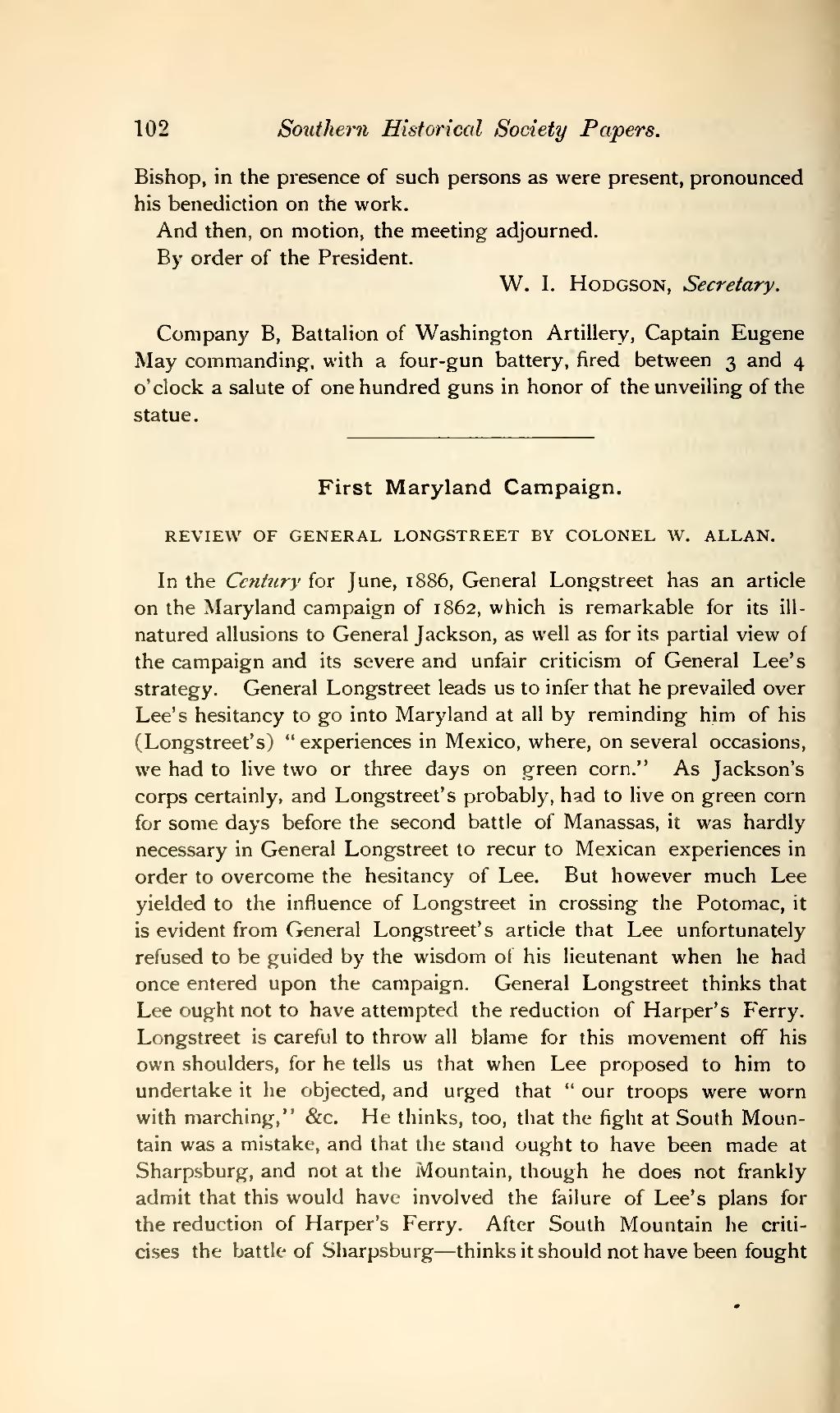102 Southern Historical Society Papers.
Bishop, in the presence of such persons as were present, pronounced his benediction on the work.
And then, on motion, the meeting adjourned.
By order of the President.
W. I. Hodgson, Secretary.
Company B, Battalion of Washington Artillery, Captain Eugene May commanding, with a four-gun battery, fired between 3 and 4 o'clock a salute of one hundred guns in honor of the unveiling of the statue.
First Maryland Campaign.
REVIEW OF GENERAL LONGSTREET BY COLONEL W. ALLAN.
In the Century for June, 18S6, General Longstreet has an article on the Maryland campaign of 1862, which is remarkable for its ill- natured allusions to General Jackson, as well as for its partial view of the campaign and its severe and unfair criticism of General Lee's strategy. General Longstreet leads us to infer that he prevailed over Lee's hesitancy to go into Maryland at all by reminding him of his (Longstreet' s) "experiences in Mexico, where, on several occasions, we had to live two or three days on green corn." As Jackson's corps certainly, and Longstreet' s probably, had to live on green corn for some days before the second battle of Manassas, it was hardly necessary in General Longstreet to recur to Mexican experiences in order to overcome the hesitancy of Lee. But however much Lee yielded to the influence of Longstreet in crossing the Potomac, it is evident from General Longstreet' s article that Lee unfortunately refused to be guided by the wisdom of his lieutenant when he had once entered upon the campaign. General Longstreet thinks that Lee ought not to have attempted the reduction of Harper's Ferry. Longstreet is careful to throw all blame for this movement off his own shoulders, for he tells us that when Lee proposed to him to undertake it he objected, and urged that " our troops were worn with marching," &c. He thinks, too, that the fight at South Moun- tain was a mistake, and that the stand ought to have been made at Sharpsburg, and not at the Mountain, though he does not frankly admit that this would have involved the failure of Lee's plans for the reduction of Harper's F'erry. After South Mountain he criti- cises the battle of Sharpsburg — thinks it should not have been fought
